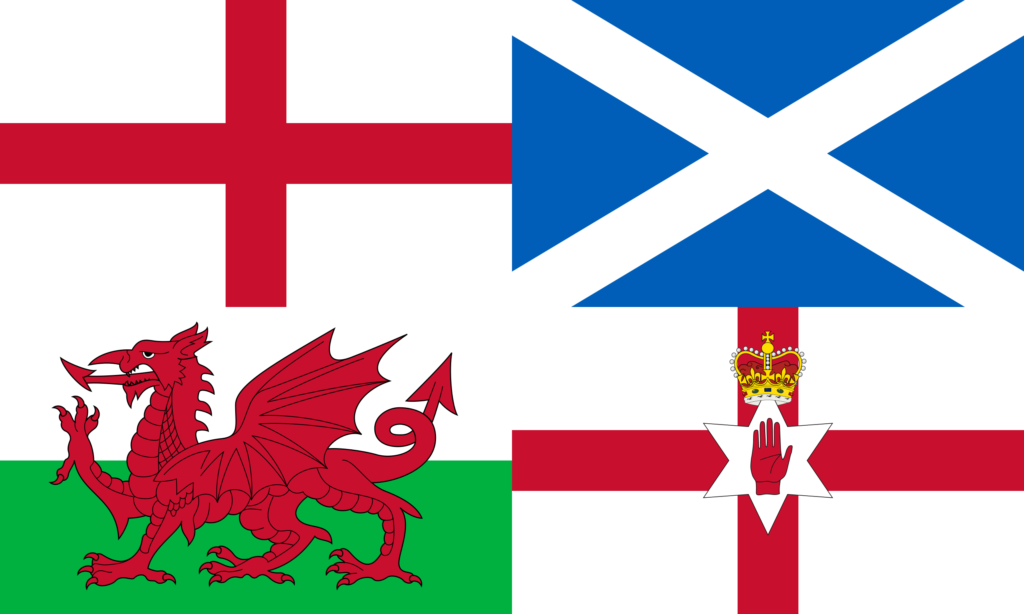
A radicalised, nostalgic and reductive unionism only alienates most people. To create a stronger union, we need to embrace and celebrate the UK’s rich diversity, writes Mark McInnes.
This an edited version of a speech in the House of Lords last week. The full version can be watched here
“I believe that every Scotsman should be a Scottish Nationalist. If it could he proved that a separate Scottish Parliament were desirable, that is to say that the merits were greater than the disadvantages and dangers, Scotsmen should support it”, the author and unionist MP John Buchan, later Lord Tweedsmuir, said in 1932.
In this age, it is difficult to appreciate how someone whose very political identity was unionist—a unionism formed around Irish unionism—could make such a bold and seemingly contradictory assertion. However, that statement is not as contradictory as it first appears; in fact, it may offer a glimpse of how the union can be strengthened over the next 10 to 20 years.
A stock take of the union may seem to some to be a fool’s errand from a unionist perspective when one considers its apparent, if superficial, fragility in both Scotland and Northern Ireland over the last decade. In both, a demographic inevitability is often cited in favour of Scottish independence and Irish unity. In Scotland over the decades, British identity has plummeted while political nationalism has dominated the Scottish political scene. Perhaps that is soon to change, but the SNP was seemingly only strengthened by the referendum defeat in 2014. In Northern Ireland, meanwhile, the assumption that demographic change could lead to a nationalist majority seems at first glance fulfilled with the Sinn Féin primacy at the ballot box and a Sinn Féin First Minister.
However, regarding the future of the United Kingdom in both Scotland and Northern Ireland, public opinion and party-political support should not be confused. Yes, since 2014 Scotland has been divided almost equally on the desirability of an independent Scotland. However, despite the supposed kryptonite powers of both Brexit and Boris Johnson, that parity has not changed. Most importantly, the number of people who want an independence referendum now is less than half of those who favour an independent Scotland. Only last week, a poll showed that independence as a priority for Scottish voters is at its lowest level ever. It is no wonder that Nicola Sturgeon probably felt she had run out of road— as well as for various other reasons.
In Northern Ireland, support for Irish unity remains stubbornly stuck at 30%, with the fastest-growing demographic groups—self-identified Northern Irish and “neither unionist nor nationalist”—favouring remaining in the UK by 2:1. As we also know, the number supporting Irish unity diminishes as people consider the disruption and changed public services that would result.
Should those who support the union therefore enjoy a feeling of complacency about the continuation of the status quo? The answer is clearly no. While the current level of support for the union seems broadly stable in Scotland and Northern Ireland, in Northern Ireland most people see unity as inevitable when asked and traditional political unionism appears to be in retreat. At the same time, despite the fact that the SNP is now going through its own political travails, support for independence remains stubbornly stuck at 50%, with support among young people very high.
Political uncertainty and a reaction against disruption and existential change have provided the union in Scotland and in Northern Ireland with a strategic breathing space of which the UK Government and those who support the union must take advantage. That is why John Buchan’s words in 1932 now seem so prescient: the union needs a new identity.
to try to enforce a false Britishness on people who are currently, on balance, in favour of the United Kingdom would be counterproductive at best
Mark McInnes Tweet
Born in 1875, John Buchan was the epitome of British imperial unionism. He was to serve as Governor General of Canada as well as being a unionist MP. However, if one looks at the unionism he celebrated, it was a union of diversity. In the Houses of Parliament, we see the English rose, the Irish harp and the Scottish thistle equally displayed—a display of diversity, difference and national pride. It was not some uniform symbol of British national identity that we would see, for example, in France at the same time. Even at its international height, the strength of the United Kingdom came from its diversity and not a desire for uniformity or what would now be called “muscular unionism”, where only the union flag, Britannia and related symbols can be deployed to argue for the union.
Some unionists may regret that the union is not to be saved by even more red, white and blue. They will be disappointed by what they will portray as my weak-kneed approach to the union’s cultural identity. There is, though, often a disproportionate relationship between those who did least in the 2014 Scottish referendum, when the future of our country was under existential threat, and their now fervent muscular unionism. The very idea that this approach will do anything other than alienate from the union the broadly younger and forward-looking median voters for whom the constitution is not a priority seems to me obvious.
Yes, unionists must be able to celebrate their sense of Britishness as they see fit—I always will—but for the state to try to enforce a false Britishness on people who are currently, on balance, in favour of the United Kingdom would be counterproductive at best.
That means that the First and Deputy First Ministers of Northern Ireland reaching out to celebrate all Northern Ireland’s identities and cultures should be celebrated, and not pilloried as we have seen over the last fortnight from some quarters. Reaching out to all communities was something that Lady Foster was a trailblazer in during her time as First Minister and it is surely the very essence of unionism. One need only look at how much damage the nationalist cause in Scotland has done to itself by using government as an extension of its narrow vision of Scottish nationalism. Unionists should rejoice that the SNP has chosen to do so. By refusing to engage with those who disagree with it or understand their views, the SNP has only helped secure the integrity of the United Kingdom. There is a lesson for all of us in this.
A United Kingdom responding to its people’s priorities across the United Kingdom is the very best way to secure that United Kingdom.
Mark McInnes Tweet
The danger to the union, both in Scotland and Northern Ireland, is a radicalised, nostalgic, reductive unionism of the last resort, where speaking forcefully about the union in a way that is completely disconnected from the priorities of real people does little to strengthen it. Too often, those of us who support the union assume that others see the world as we do, through that prism. A new train service to Glasgow or Cardiff, if it happens, should be celebrated by the United Kingdom Government because it improves connectivity and not because, as all too often department press officers are told to say, “It’s good for the union”. Immediately, a cynical public assume that the UK Government make an investment not for the betterment of all their citizens but for some distant and disconnected political term.
Constantly using the word “union” and not pursuing policies that strengthen the union does nothing other than tick a box. Supporting the union should always be about actions in real people’s lives and not political polemic. A United Kingdom responding to its people’s priorities across the United Kingdom is the very best way to secure that United Kingdom.
Of course the constitutional settlement must be upheld, and I applaud the UK Government for doing so over the recent gender reform issue in Scotland, but it should not be done for political partisanship. I find it odd that some of the most vociferous commentators concerned about the Scottish Government engaging in reserved areas did not have the same concerns when a Labour/Liberal Democrat Administration were doing exactly the same thing.
Instead, the United Kingdom should play to its strengths and go with the groove in both Scotland and Northern Ireland. That means ensuring in Northern Ireland that the “best of both worlds” economic advantage of being in the UK and EU single markets is fully utilised. The UK Government should not be mealy-mouthed about the Windsor agreement and the return of Stormont, which has the support of the vast majority of unionists and nationalists in Northern Ireland, as evidenced only last week in Liverpool University’s Institute of Irish Studies poll.
The UK Government should be doing all they can to ensure that Northern Ireland can build on the dynamism unleashed since the Good Friday/Belfast agreement. Let us make Belfast and Derry/Londonderry the tech hubs of the UK, using all the human resource and higher education network the UK has to offer. For too long, the view of the UK Government has been that “Northern Ireland is different”. We need to properly invest the leverage that the UK has.
In Scotland, we should work with the Scottish Government and local authorities to ensure that the economic leverage of the UK builds on its energy past to become the renewable superpower of the world while we maximise the continuing opportunities of the North Sea.
John Buchan would have approved of the strength of the UK being used to build and strengthen the success of Scotland, Wales and Northern Ireland, making them ever more vibrant and successful parts of their country. These steps and this progress will then in turn make people even more risk averse to constitutional change, but in a positive, confident way—not the politics of financial transaction and “project fear”. For the union to build on its current structural stability, it needs to culturally change its attitude from fighting seeming inevitability to embracing diversity, returning to the roots of a successful and dynamic United Kingdom, where identity is not subsumed but celebrated.
Lord McInnes of Kilwinning was formerly director of the Scottish Conservative party and a No10 special advisor on the Union.










